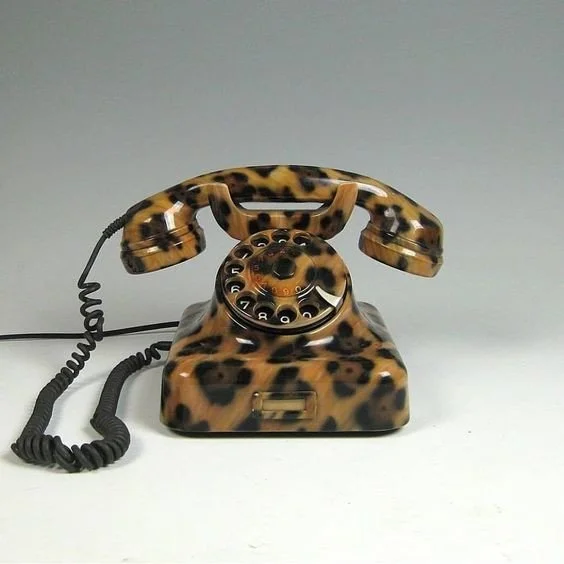Learn to Communicate Better
Effective communication is one of the most powerful yet underrated skills in adult relationships—a surprisingly rare reflection of respect and maturity that deserves far more cultivation in modern life.
We tend to think of communication as something that just happens—something automatic, like breathing or blinking. But true communication—the kind that builds trust, deepens connection, and moves life forward—is far rarer than we like to admit. And effective communication? That’s rarer still.
I've come to realize that one of the quiet privileges of my closest relationships is this: they are with people who know how to communicate. Really communicate. When we say we’re going to travel together or attend an event, we follow through with clarity. We coordinate—who, what, when, where—with ease. Plans are confirmed, details are shared, and follow-ups are natural.
There’s no vagueness, no flaking, no ambiguity. Everyone stays on the same page, and nobody is left wondering. That kind of ease isn’t just pleasant—it’s powerful. It signals mutual respect. It removes stress. It creates momentum. It’s also, I’ve discovered, remarkably rare.
-
Introducing The Parlor, an exclusive repository of 100+ personal growth, self-care, and luxury living resources to help you thrive.
-
Explore The Dossier, our premium career and business intelligence platform for luxury industry professionals and brands.
The Illusion of Intelligence
What’s been especially surprising is discovering how often clear communication fails to correlate with education, income, or professional success. I’ve interacted with people who hold advanced degrees, lead teams, and navigate complex systems at work—yet struggle to communicate basic plans in real life.
Asking something as simple as, What time should we meet? can yield the most convoluted, noncommittal responses. No time is confirmed, no decision is made, and somehow, you’re left with more questions than answers. What should be a five-second exchange becomes an exercise in patience, interpretation, and unspoken power dynamics.
And that’s the key—communication is not just about logistics. It reveals how someone sees themselves, how they see you, and what (if anything) they are trying to avoid.
When Vagueness Is Strategic
Not all poor communication is innocent. In some cases, it’s a form of inconsideration, passive aggression, or a cover for a hidden agenda. People stay vague when they don’t want to be accountable. They’re unclear when they’re hedging. They stall or dodge when they want to keep their options open without saying no.
And often, when someone simply will not be direct, it’s because they have something to gain from your confusion—or at the very least, they don’t care enough to clarify. In these moments, the message is clear even when the words are not: you are not a priority.
Clarity Is Emotional Maturity
Clear communication is not just a skill—it’s a signal. It indicates emotional intelligence, personal integrity, and respect for other people’s time and energy. Being able to say what you mean, follow through, and communicate with purpose means you’ve done the inner work to move through life cleanly. There’s no manipulation. No petty games. No leaving others guessing. And if someone can’t or won’t offer that? It’s not your job to decode their chaos. It’s your cue to step back.
Elevate Your Life
Take our conscious luxury course and turn your life into a masterpiece of majestic moments — tailored to your distinct tastes and personal preferences.
Stop Tolerating Carelessness
We’ve collectively lowered the bar for what’s acceptable when it comes to interpersonal dynamics. We accept vague replies, missed messages, ghosting, chronic indecision, and plans that never materialize. We excuse it as “everyone being busy,” or “they must’ve forgotten,” or “they’re just bad at texting.” But when this becomes a pattern—especially among high-functioning adults—we have to stop giving it a pass.
Especially when you are clear, when you communicate well—you deserve reciprocity. You should not have to compensate for someone else’s lack of coherence. Boundaries around communication are not harsh. They’re healthy. Otherwise you risk wasting time and energy.
Demand Mutual Respect
Want better connections? Seek out those who:
Say what they mean without making you drag it out of them
Confirm plans and follow through promptly
Apologize or clarify when miscommunication occurs
Make clear decisions and don't leave you in limbo
Respond in a timely manner without disappearing when it's inconvenient
And if someone consistently shows the opposite, you have a choice. Not everyone belongs in your close circle. You don’t have to keep bending to make things work with people who can’t simply say what they mean.
Effective Communication Is Kind
Ultimately, communication is a form of care. It’s how we build trust, reduce anxiety, and move through life with more peace and less friction. Clarity is kindness. Confusion is a red flag. And as we grow, we learn that compatibility isn't just about shared interests or values—it's also about whether someone can meet you at your level of presence, precision, and respect.
Because in a world full of mixed signals and mental gymnastics, there is nothing more grounding than someone who means what they say and says what they mean.







